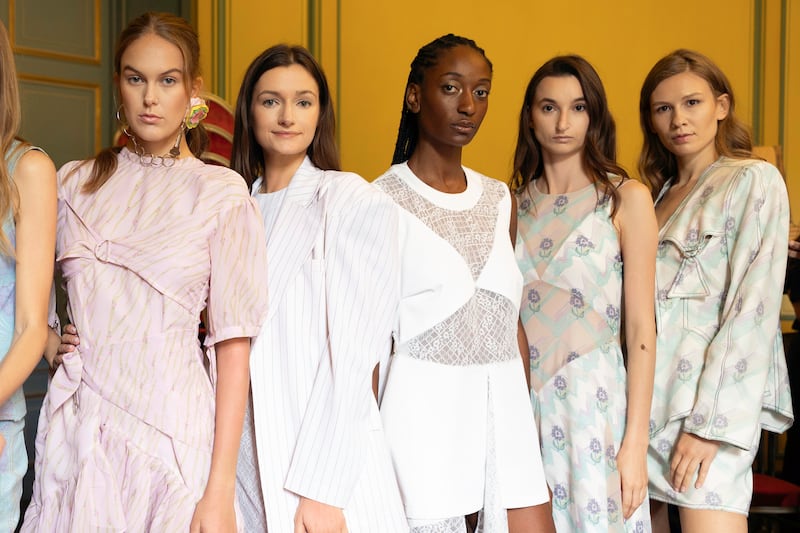The global fashion industry reportedly contributes to four per cent of greenhouse gas emissions annually. With an increasing population and shifting consumer patterns, that number is only set to rise – even if brands are beginning to take measures to reduce their carbon footprint. Something's got to give.
As it stands, approximately 70 per cent of the fashion industry’s emissions come from upstream activities such as material production, preparation and processing, meaning there are actionable steps that brands can take to limit their impact, through choices of fabrics and manufacturing methods as well as reducing wastage.
“If no further action is taken over the next decade beyond measures already in place, the industry’s GHG emissions will probably rise to about 2.7 billion tonnes a year by 2030, reflecting an annual volume growth rate of 2.7 per cent,” explains the 2020 McKinsey report that also concluded the four per cent figure.
“This would leave levels at nearly double the maximum required to stay on the 1.5-degree pathway,” it explains, referencing the commitment to reduce the planet’s temperature by 1.5 degrees by 2030, as outlined in the 2015 Paris Agreement.
It's time to think outside the box and truly commit to a change in their business models to have a significant effect – a task a handful of brands across the region are beginning to take on.
Fostering a culture of sustainability across the region
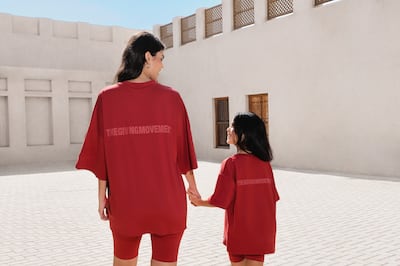
In the Middle East, home-grown fashion brands have been considering their contribution to this problem on a global level for some time. While a blanket solution is not forthcoming, many independent brands are taking steps to find more planet-friendly solutions for their production, distribution and supply chains.
“Sustainability in this region is promising, with increasing awareness and initiatives in various sectors,” Dominic Nowell-Barnes, founder of the sustainably-focused athleisure brand The Giving Movement, tells Luxury.
“While significant progress has been made, there’s still room for continuous improvement, not just in the UAE, but globally. We need wider adoption of sustainable practices, greater investment in renewable energy and more support for start-ups focused on sustainability. Fostering a culture of sustainability through education and incentives is key to driving further progress. Collaboration among all stakeholders is essential for creating a greener and more resilient UAE.”
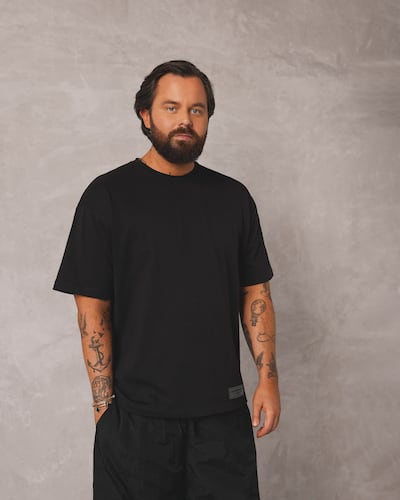
Nowell-Barnes founded his company on the desire to create a brand that gives back through charity and commits to sustainability. On the philanthropic side, with every purchase, The Giving Movement commits to donating $4 in support of child welfare and humanitarian aid. This is something Nowell-Barnes committed to doing after a factory visit to India in 2009, when he witnessed first-hand the “areas of real poverty deep in the slums and people who were really just trying to survive”.
On the sustainability side, the company is committed to creating eco-friendly fabrics where possible and using production processes that minimise the brand’s ecological footprint.
“Sustainability is a never-ending challenge for all businesses, particularly in fashion. There is always more you can do and new innovations and technology that raise the bar, which you can choose to invest in. At TGM, we prefer to say that we are on a continuous journey to become more eco-friendly every year,” he says, acknowledging that it is a gradual process, not an immediate solution.
Considering the life cycle, from product to packaging
One way the brand is providing more sustainable products is through its choice of materials and packaging. “At the start of the product life cycle, we use only independently certified GRS recycled synthetics or GOTS Indian Organic Cotton, which are dyed with Oeko-tex tested, harm-free and eco-friendly dyes. All our packaging and trims are also recycled and recyclable. We recognise that the end of life is the next phase we want to work on,” Nowell-Barnes says.
Currently, The Giving Movement produces its own eco-conscious materials, including recycled polyester, recycled nylon and organic Indian cotton. But there is still more to be done. “As bio-based synthetics become more available in the market and this technology continues to develop, we hope to move away from recycled synthetics and into bio-based synthetics, as this will help solve many issues we see the fashion industry facing, especially concerning microplastics,” the brand’s founder says.
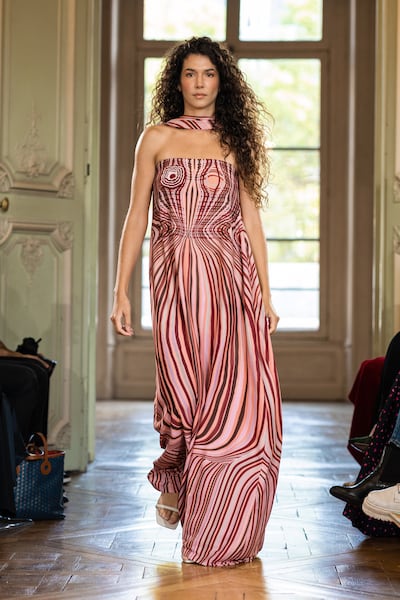
Reema Al Banna, founder of Reemami, is also putting sustainability at the forefront of her brand. “As an independent fashion label in the Middle East, I’m deeply committed to leading the way in sustainable production,” she says. The Palestinian designer founded her fashion brand in Dubai in 2009, and from the beginning, she considered the impact of her brand. Segmenting her approach into categories, she sources her materials ethically, where possible, undertakes local production, reduces waste, creates products in limited runs and uses green packaging. “By prioritising sustainability in these ways, I aim to position our fashion label as a leader in environmentally and socially responsible practices in the Middle East.”
Switching seasonal lines for lifelong buys
Rather than designing for seasons, Al Banna’s approach is to create timeless capsule pieces that can become part of a “forever collection”. She doesn’t differentiate between spring/summer and autumn/winter lines, to encourage customers to keep pieces for longer and discourage overbuying.
“There’s a significant shift in what consumers in the region prioritise and support. They’re inclined towards choosing items with longevity, pieces that resonate with them personally and that they can envision wearing for years to come. It’s not just about clean luxury or minimalism; statement pieces that evoke emotion and uplift their mood are also highly valued,” she says.
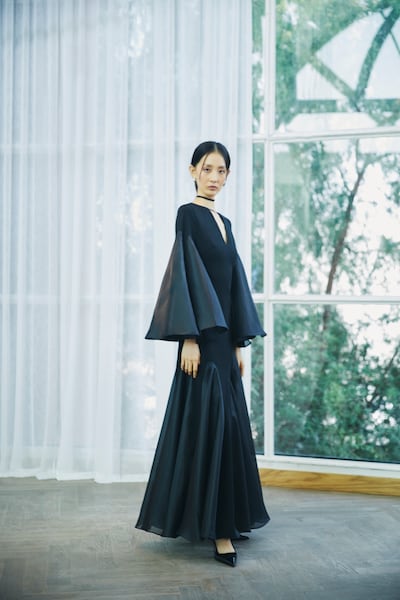
Another brand taking a similar approach when it comes to creating seasonless collections is Kuwait’s Bazza Alzouman, whose namesake founder also hopes to lead the way in sustainable production by minimising wastage.
“We try to minimise the stock that is produced so that we don’t have too much remaining on hand at the end of the season,” Alzouman tells Luxury. “As such, we have never had regular end-of-season sales, which ensures a sense of timelessness for our pieces.” Looking ahead, the brand hopes to focus more on sustainable materials, experimenting with new processes, and keeping production localised to reduce the impact of the supply chain. “When it comes to materials, we source a lot locally and thus support the fashion ecosystem in Kuwait. However, the materials themselves are not categorised as sustainable in terms of their production and fibre content. That is something that we would like to consider in the future,” she adds.
Embedding the message to the consumer mindset
While brands have a responsibility to pursue change, if we, as consumers, don’t make a conscious effort to change our habits and buy into those changes, the problem will simply continue. “I think there needs to be a lot more education on the consumer side,” Alzouman says.
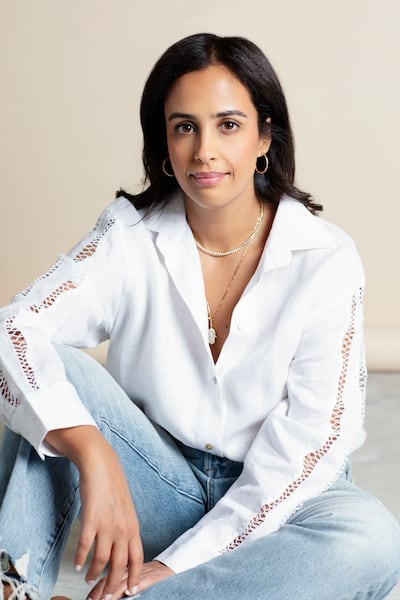
“It seems like consumers are getting mixed messages in a way. While they care about, and would like to support sustainability, the pull of fast fashion is much stronger, and sometimes it needs to be made clear that sustainability comes at a higher price, but also ideally lasts longer and has a better social impact. The goals of sustainability and business in general can be at odds, so it’s a delicate balance that needs to be supported from all ends.”
Nowell-Barnes echoes this sentiment, emphasising the transformative power of individual actions in steering fashion towards a more sustainable trajectory. “On an individual level, trying to buy a little less from fast fashion, however tempting it might be to buy a new outfit regularly at low prices, and instead wearing more long-lasting clothes that consider the impact on the planet and its people is crucial.”
Ultimately, the journey towards sustainability in the Middle East’s fashion industry is not merely a matter of choice, it’s a collective imperative. While brands are taking much of the responsibility, problems will remain unless we as clients, understand the impact of our choices and buy into the changes made by fashion brands. But there is hope. With trailblazing fashion companies on the case and sustainably produced products becoming evermore accessible, there is much promise of a greener outlook.
